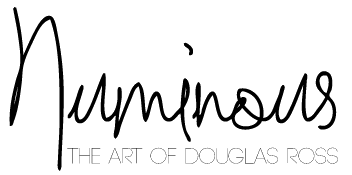
Jordan Turkey Trade Agreement
Jordan Turkey Trade Agreement
April 10, 2021
Bilateral trade between the two countries amounted to nearly $960 million, with Turkish exports to Jordan amounting to $860.9 million in 2018. The following agreements have been replaced by the Eu-Eu-Turkey customs union: Jordan`s Minister of Industry, Trade and Supply, Tariq Hammouri, travelled with a delegation to the capital of Ankara for the agreement, Ruhsar Pekcan said in a Twitter message. While joint economic committees hold meetings to focus on promoting bilateral trade, free trade agreements reduce barriers to trade, such as import quotas and tariffs. While the Jordanian government has tried to right its image in response to criticism from workers` and human rights groups, it has also sealed agreements with other nations. It has free trade agreements with the EU, as part of the Barcelona, EFTA, Palestine and Syria processes. It signed a free trade agreement with Singapore in 2004 and with Canada in 2008 (which has yet to be ratified). In 2010, it signed a four-way agreement with Syria, Turkey and Lebanon. Turkey and Jordan have signed a framework agreement for a Joint Economic Committee (JOC) to boost bilateral trade, as announced on Tuesday by Turkey`s trade minister. This page lists the free trade agreements signed by Turkey. [1] In 1995, Turkey signed a customs union with the European Union for products other than agricultural products and services. Since 2018, the EU has been Turkey`s main trading partner, with 50% of its exports and 36% of its imports.
[2] The Kingdom of Jordan signed a major free trade agreement with the United States in 2000, a strategic agreement for the United States. However, one of the best documented effects of this agreement was the poor working conditions of migrant workers working in U.S. factories. The free trade agreement between the two countries, signed in March 2011, was denounced last year by Jordan because of unfavourable economic conditions. She said the framework agreement that establishes the JEC would strengthen bilateral trade and economic relations. Major trading partners: United States, Iraq, Saudi Arabia, India Main export products: fertilizers, clothing, potash, fruit and vegetables Main imports: mineral fuels, iron and steel, machinery, transport equipment, cereals Jordan and Turkey have long connections dating back to the early 1990s. In 1994, Jordan and Turkey established the Turkish-Jordanian Economic Council. The Council`s objective is to serve as a model for joint ventures between the two countries.
The Council calls on the private sector of both countries to return the favour to their trade and investment. In 2011, Jordan and Turkey also signed a free trade agreement that removes customs barriers and facilitates bilateral trade and investment. On 28 April 2014, during the visit to Jordan of the former Turkish Minister of Economy, S.E. Nihat Zeybekci, was held on 28 April 2014. At that meeting, the revised agreement on the creation of the Business Council was signed. – Partnership Council meetings: the first and last Council meeting was held on 28 and 29 April 2014 as part of the free trade agreement signed between Jordan and Turkey during the visit of H.E. Abdullah Gul, former President of Turkey, to Jordan in 2009. Jordan-Turkey Free Trade Agreement: Facts and Figures | July 2020 After the signing of the free trade agreement, Jordan`s trade performance with Turkey has been beneficial. Resource: Economist Intelligence Unit, World Bank and Turkish Ministry of Economy Number of visitors to Jordan: 6,169 (2014), 7,872 (2015) – Business Council/Business Forum: Turkish-Jordanian Business Council was founded in 1994. The last Council meeting was held in Amman on 3 February 2016. The government is currently negotiating with Iraq, Kazakhstan and Pakistan and is requesting free trade agreements with Mercosur and Russia. Jordan is also a member of the Agadir Agreement and the GAFTA.
Turkey`s exports to Jordan: mineral fuels, boilers, machinery, electrical and electronic equipment, products
NewsArchives
- 26th Sep 2023 - Contract Free Sim Cards
- 21st Sep 2023 - Who Signed Ceca Agreement
- 21st Sep 2023 - Wedding Agreement Bercerita Tentang
- 11th Sep 2023 - What Is an Overarching Contract
- 5th Sep 2023 - The Arbitration Clause in Fidic Contracts for Major Works
- 4th Sep 2023 - Bullet Train Loan Agreement
- 21st Aug 2023 - Grant of Permission Agreement
- 18th Aug 2023 - Sba Agreement Form 159D
- 13th Aug 2023 - What Does Are We in Agreement Mean
- 12th Aug 2023 - Construction Project Management Contract Agreement